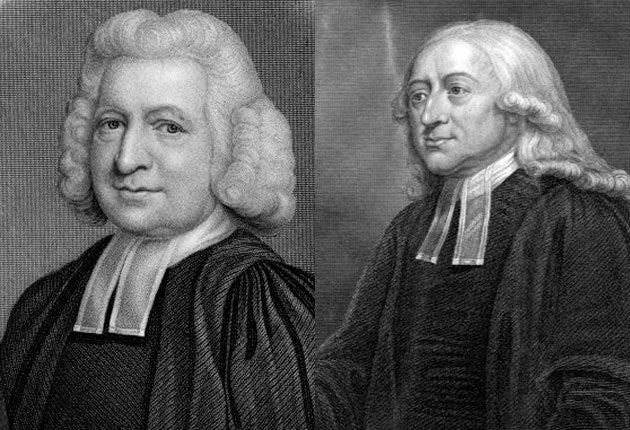Leader signals end of Methodism
Reverend surprises general synod by suggesting that his Church should consider merger with Anglicans

Your support helps us to tell the story
From reproductive rights to climate change to Big Tech, The Independent is on the ground when the story is developing. Whether it's investigating the financials of Elon Musk's pro-Trump PAC or producing our latest documentary, 'The A Word', which shines a light on the American women fighting for reproductive rights, we know how important it is to parse out the facts from the messaging.
At such a critical moment in US history, we need reporters on the ground. Your donation allows us to keep sending journalists to speak to both sides of the story.
The Independent is trusted by Americans across the entire political spectrum. And unlike many other quality news outlets, we choose not to lock Americans out of our reporting and analysis with paywalls. We believe quality journalism should be available to everyone, paid for by those who can afford it.
Your support makes all the difference.The leader of Britain's Methodists made the astonishing suggestion yesterday that he would be willing to sacrifice his church's existence and forge an alliance with the Anglican Church if it was best way to continue spreading the Gospel.
Reverend David Gamble put forward the argument that seeking the Kingdom of God should be considered more important than the continued existence of individual Churches.
In a remarkably candid speech to the Church of England's general synod, the president of the Methodist Conference announced: "We are prepared to go out of existence, not because we are declining or failing in mission, but for the sake of mission. In other words, we are prepared to be changed and even to cease having a separate existence as a Church if that will serve the needs of the Kingdom."
The speech was greeted by many as a sign that the Methodist leadership is keen to forge stronger alliances with Anglicans. Seven years ago, the two churches officially buried the hatchet following a 200-year theological rift by agreeing to a "covenant" under which they would work towards establishing "organic unity" between the two faiths.
Although there are still major sticking points between the two sects – British Methodists, for instance, are opposed to bishops – many within the Methodist church believe the pace of that unity is progressing too slowly. Both the Anglican and Methodist churches have experienced drastic falls in their congregations over the past two decades, and some believe an official alliance would enable both to pool their spiritual and financial resources.
The Methodist Church in particular is in seemingly terminal decline. Only 265,000 members are left, many of whom are from an older generation. Some analysts believe worship at Methodist chapels could be all but extinct by the middle of the century.
But closer co-operation may be hard to achieve. Traditionalists, Anglo-Catholics and some evangelicals within the Church of England are vehemently opposed to Methodism because of the leadership roles that women hold in the latter. Reconciliation talks between the two faiths began in the early 1960s, but the first attempt to build a covenant was rejected by a synod in 1972 after a successful campaign of opposition from Anglo-Catholics. It took another 40 years, in which the established church took on an increasingly progressive and liberal guise, for the Methodists to be welcomed back.
Anglo-Catholics have been threatening to leave Anglicanism if the Church of England pushes ahead with the consecration of women bishops. Their departure would make Methodism's potential inclusion in the Anglican Communion much less problematic.
Methodism: A brief guide
* Methodism's founder John Wesley (1703-1791) was a charismatic Anglican theologian who began a deeply spiritual Christian revival movement. Ironically he never intended to create his own church. His brother and fellow Methodist leader Charles said: "I live and die a member of the Church of England."
* Wesley's insistence on taking worship away from parish control and into some of Britain's poorest cities caused friction among church leaders which, after his death, eventually led to schism.
* Throughout the industrial revolution, Methodism grew with evangelical fervour. But the late 20th century has seen a steady decline, with just 265,000 followers remaining. Margaret Thatcher was born into a devout Methodist family.
* In the US, the United Methodist Church is the second largest Protestant church after the Southern Baptist Convention.
Join our commenting forum
Join thought-provoking conversations, follow other Independent readers and see their replies
Comments